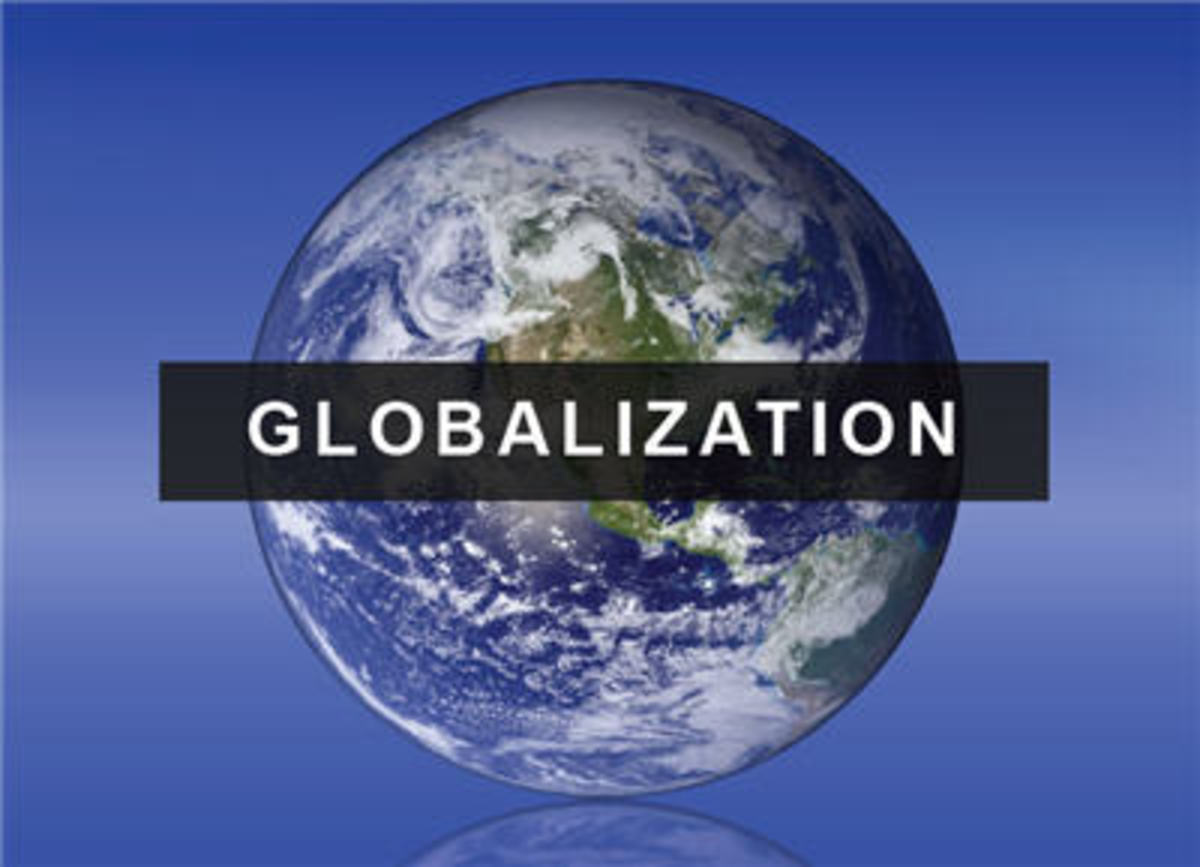Globalization and International Accounting- GAAP vs. IFRS
What Do You Think Of When You Hear The Word "Globalization"?
When most people hear the word "Globalization" one of the first things that comes to mind is all of the attention that is put on all of our outsources trends, although it has an impact on almost every part of our daily lives. In the world of accounting, accounting programs are known for strict for rules and regulations. But with more businesses going global, modern accounting practices are advancing into accounting structures, making them a vital component in international business.
Globalization is a process where businesses develop international power by moving their operations onto an international scale- bringing together people, governments, and businesses (Business and Society: Stakeholders, Ethics, Public Policy). The rate at which these companies are growing is significantly impacting the accounting practices that support them. It is becoming rather hard for accountants to remain guarded from all of the changes that are taking place worldwide. Globalization presents many opportunities and challenges for companies, so they usually turn to the accounting practice for support. A survey of US accounting firms that was done by the American Institute of CPAs showed that international services is a hotspot for the accounting practice, with 79% of their correspondence anticipating international growth within the next five years. They say this growth is fueled by the demand for US businesses and overseas expansion ("How Accounting Practices Can Support the Globalization of Small Business."). Globalization has created many new career opportunities for individuals who are willing to embrace the speed at which the business environment is constantly changing. And these accountants that recognize the opportunities that globalization presents, have the privilege to capitalize on them and introduce them into the accounting practice. On the contrary, those that refuse to keep up with the pace of globalization or acknowledge the affects of it might face difficulties as the years in their career progress(“The Effect of Globalization on Accounting Programs”).
One very important part of accounting that has been greatly affected by globalization are Generally Accepted Accounting Principles, or “GAAP”. There has been a rise of alternative standards that are gaining a lot of attention in international business- the main one being “IFRS” or International Financial Accounting Standards. GAAP is more rule-based while IFRS is more simplistic and flexible in its accounting requirements- allowing it to be “customized” to the company or county using it (Kieso, Donald E. & John Wiley 2016). Accountants working on an international platform as well as publicly traded companies do not look at GAAP favorably. While GAAP has been thriving within the US, its popularity has been slowing down as businesses become more complex. The differences in these approaches have resulted in many debates about the credentials of rule based versus principle-based standards ("The Effect of Globalization on Accounting Programs.")
The differences in these two standards has not only causes great trouble for internal users such as business management teams and accountants, but also the external users, like investors and creditors, who are trying to interpret and compare the two. The whole purpose for financial statements are to provide its users with timely and relevant information that will help them make an informed decision on future cash flows- but if it can not do that, what good is it? On April 18, 2002 Robert K Herdman, Chief Accountant of the US securities and exchange commission gave a speech on moving toward the globalization of accounting standards. In his speech he touched on how there has been a outcry for consolidation to a single set of high-quality international standards. Herdman explained how a convergence effort between GAAP and IFRS would help avoid conflict and confusion and prevent financial crises from taking place in the future (Speech: Moving Toward the Globalization of Accounting Standards [R. Herdman]). Though despite the effort that had been done to bring together GAAP and IFRS, unfortunately very little change has taken place to resolve many of the differences between the two standards.
IFRS is used in hundreds of countries and seems to continually gain popularity. Some argue that it represents economic transactions better than GAAP. For example, when dealing with Inventory, if the market value of your inventory were to increase, then under IFRS you can change the amount that you write-down but under GAAP you can not do that. The benefit of the IFRS write-down is that it adjusts to the changes in the marketplace. GAAP leaves very little room for interpretations- all transactions have to abide by a certain set of rules, no exceptions.
Historically, US Generally Accepted Accounting Principles (GAAP) had been the most used set of financial accounting and reporting standards in the world, but now countries are preparing their financial statements using International Financial Reporting Standards(IFRS). Although IFRS is not used in countries like the US, many of accounting firms that operate globally now have to be able to service the needs of clients outside of their home country. With its advancement slowing, will GAAP be able to reclaim its position as the most respected set of financial accounting standards?
"The Effect of Globalization on Accounting Programs." Vista College Blog. N.p., n.d. Web.
http://www.vistacollege.edu/blog/careers/the-effect-of-globalization-on-accounting-programs
"How Accounting Practices Can Support the Globalization of Small Business." IFAC. N.p., n.d. Web.
KIESO, DONALD E. INTERMEDIATE ACCOUNTING + WILEYPLUS. JOHN WILEY, 2016.
Lawrence, Anne T., and James Weber. "Business in a Globalized World." Business and Society: Stakeholders, Ethics, Public Policy. N.p.: McGraw-Hill Education, 2017. 70-88. Print.
"Speech by SEC Staff: Moving Toward the Globalization of Accounting Standards." SEC Speech: Moving Toward the Globalization of Accounting Standards (R. Herdman). N.p., n.d. Web.
https://www.sec.gov/news/speech/spch554.htm








